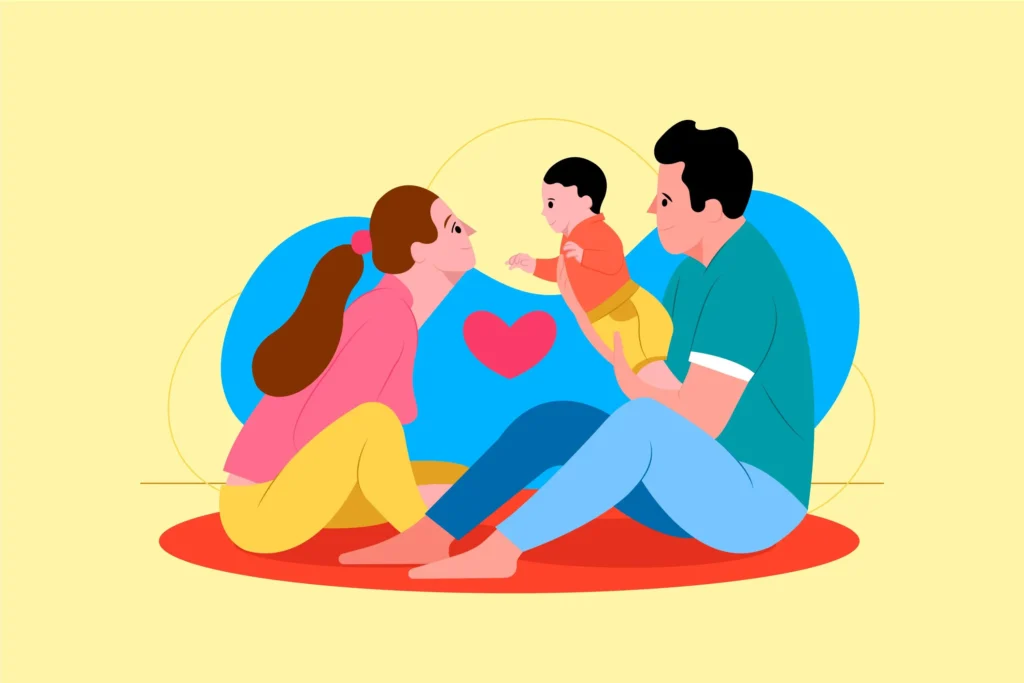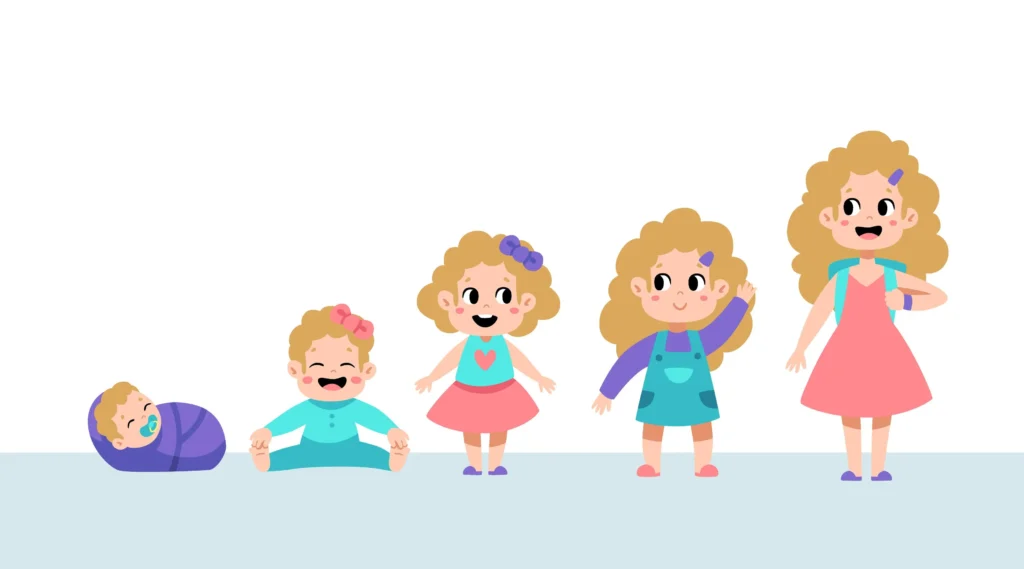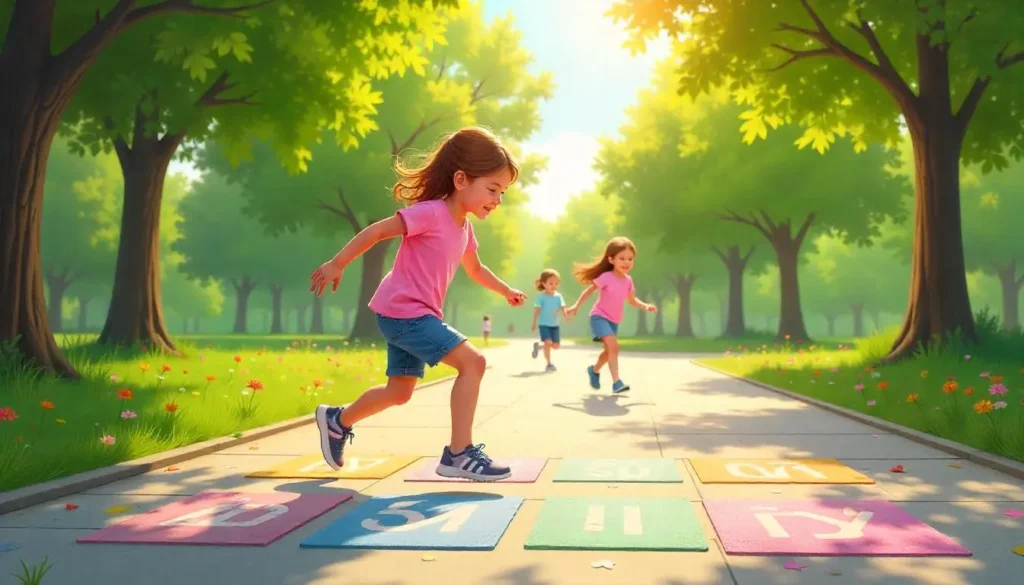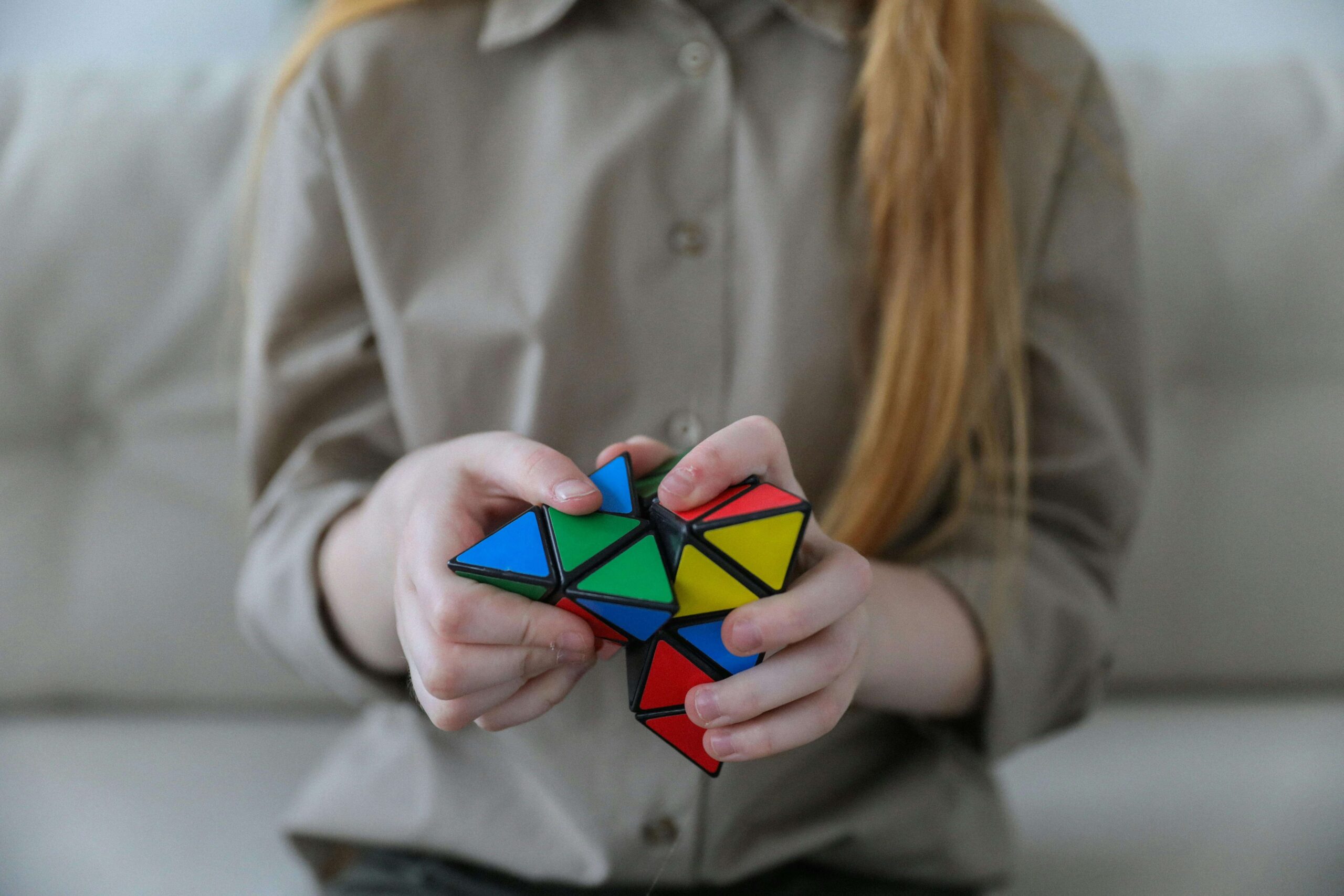
Table of Contents
Introduction
Introduction: As parents, the growth and well-being of our children are our highest priority. One of the most fascinating and critical aspects of raising a child is understanding the child development. Child development encompasses the physical, cognitive, emotional, and social growth from birth to adulthood.
During these formative years, children experience tremendous changes that shape their future. Understanding early childhood development is essential to fostering a nurturing and supportive environment that enables children to reach their full potential.
This comprehensive guide will take you through the essential stages of child development, including key milestones in physical, cognitive, and social growth. By exploring motor skills in toddlers, language development, emotional intelligence, and more, this blog will help you understand the path your child will take during their early years and how you can support them in each stage.
1. The Importance of Understanding Child Development
Child development refers to the changes and growth that occur in children as they progress through different stages. It includes the physical, intellectual, emotional, and social transformations that begin at birth and continue into adolescence.
Parents who are well-informed about these stages can better support their children’s needs, ensuring they grow up healthy and happy.
Understanding early childhood development is very important because the early years are the foundation of future learning, relationships, and overall well-being. The first few years are critical because this is when the brain grows the most.
Support for children during these early stages can help parents ensure a healthy and strong future for their children.
2. The Stages of Child Development: An Overview
The development of a child can be broken down into several key stages. Although each child develops at their own pace, the following stages represent general milestones that most children experience.
Infancy (0-2 Years):
The first phase of child development is infancy, which ranges from birth up to about two years. During this time, babies experience fast physical growth and begin acquiring important motor skills. Babies learn how to respond to the world by engaging in sensory discovery, looking, listening, touching, and tasting.

Physical Development: In the first few months, babies develop basic motor skills such as rolling over, sitting up, and crawling. By the end of the first year, babies are often able to stand with support, walk with assistance, and use their hands to grasp objects.
Cognitive Development: Infants start to differentiate between faces, identify familiar and strange voices, and begin to exhibit memory skills. They start with simple problem solving, like trying to reach something they want.
Emotional and Social Development: Babies begin forming emotional attachment with their caregivers, exhibiting emotions of happiness, fear, and frustration. Socially, they become familiar with certain faces and could be suffering from separation anxiety.
Early Childhood: 2-6 Years
This is known as the early childhood development phase, where a child undergoes significant growth in cognitive, emotional, and physical areas. This is the age when toddlers improve their motor skills and become more independent.
Motor Skills in Toddlers: During this time, as a child is nearing the age of two, motor skills in toddlers greatly improve. Children begin walking by themselves, running, and can even kick or throw a ball. Their fine motor skills develop when drawing or stacking blocks.
Cognitive Development: Early childhood is a period of language explosion. Children’s vocabulary increases rapidly as they begin to form more complex sentences and communicate their needs and thoughts. They also start to develop problem-solving abilities and begin to engage in more imaginative play.
Emotional and Social Development: Toddlers go through a wide range of emotions, including happiness, anger, and frustration, and they start to develop a sense of self. Socially, they start parallel play, where they play alongside other children but do not yet engage in cooperative play. They also start learning important social skills like sharing and empathy.
Middle Childhood (6-12 Years):
The steady development in both the physical and cognitive areas is found during middle childhood. Children, at this stage, continue refining their motor skills and start building a stronger sense of self.
Physical Development: Motor skills are gradually enhanced, so they become highly active in games such as running, jumping, and cycling. The fine motor activity also enhances in children, because they can perform the act of writing, drawing, and the use of utensils with increased precision.
Cognitive Development: In this stage, the child’s logical thinking and problem-solving ability are enhanced. Complex concepts are understood by the child, and even abstract thinking is done. Reading and math skills are continued to develop, and memory and attention are improved.
Emotional and Social Development: Relationships are now a big deal; children are deepening their friendships. Children continue to develop a sense of themselves and feel more complex emotions that are rooted in pride, shame, or even guilt. They also begin to appreciate peer-related functions, which are increasingly central during this period of socialization; children learn how to respect social norms and group dynamics.
Adolescence (12+ years):
This stage is the final period of growth during childhood before maturity. It characterizes rapid development in the child’s body as well as their emotional changes. They also gain independence.
Physical Development: At this stage, adolescents undergo puberty, which introduces a lot of changes in the height, weight, and sexual development. As they approach maturity, they achieve increased strength and coordination.
Cognitive Development: Teenagers start to engage in abstract thinking and can think on issues clearly. Their reasoning ability enhances, and they can start planning for their future and thinking what their actions may lead to.
Emotional and Social Development: Teenagers become independent from their parents and start trying to establish their own identity. Their peer relationships are more complex, and they might feel insecurity or self-doubt. They also begin to explore romantic relationships and take an interest in issues such as social justice and personal values.
3. The Role of Parents in Supporting Child Development
Being a parent means being there for your child’s growth and development at every stage. Here are several ways through which you can actively contribute to your child’s growth and well-being:
Encourage Physical Activity:
Supporting toddlers’ motor skill development involves the creation of opportunity for safe movement for babies and toddlers. Provide an environment in which they may crawl, walk, and exercise that promotes their physical strength and coordination. Outdoor games, sports, and all those activities enhancing motor development of the child would be encouraged while the child is growing.

Facilitate Cognitive Growth:
Early childhood development stages: At this stage, children’s brains continue to grow rapidly. Engage them in activities that challenge their thinking, such as reading together, solving puzzles, and asking open-ended questions. Play games involving memory and attention, such as hide-and-seek or memory card games.
Foster Emotional Intelligence
Encouraging emotional development is vital for healthy relationships and self-regulation. Praise your child for expressing emotions, and model positive ways of handling feelings like frustration or disappointment. Provide opportunities for socialization with peers and help your child learn empathy and how to share with others.
Provide a Safe and Nurturing Environment:
A safe, stable, and loving environment is the basis of all child development. The child needs to feel secure to explore the world, learn new skills, and develop healthy relationships. Ensure your child feels loved, valued, and supported at every stage of growth.
4. Understanding Delayed Development: What to Watch For
While each child develops at their own pace, it is important to be aware of potential delays in development. If your child is not meeting certain milestones, it may be helpful to seek advice from a pediatrician or child development specialist. Some potential signs of delayed development may include:
Difficulty with motor skills, such as not walking by 18 months or struggling to use utensils by age 3.
Speech delay or failure to comprehend language.
Poor social relationships or inability to relate to others.
Continued challenging behaviors and emotional issues.
Early intervention can make a big difference. If you have concerns, take action without delay.
5. Role of Play in Child Development
One of the strongest means of supporting child development is play. From infancy through adolescence, play is a necessary part of growing up for the child. At the stage of early childhood, especially for the toddlers, the play is considered as the first step of understanding their self and surroundings. Through it, cognitive, emotional, social, and physical skills develop naturally and joyfully.
The Role of Play in Motor Skills Development:
Motor skills in toddlers are developed very rapidly at an early age. At 2 to 4 years of age, the toddler refines basic movements such as running, jumping, climbing, or throwing and imitates various activity like these which improve their physiological powers.
Such tasks also evoke confidence in their own bodies. He or she is highly motivated to play with toys that demand manipulation, for example, stacking blocks or using crayons, which enhances fine motor skills.
A 3-year-old should be able to do a bit more coordinated things, like catch a ball or jump over a low object. These will come in handy in even more difficult activities such as riding a bicycle or participating in sports. As a result, there needs to be an environment to foster active play. Engage your child in games outside the house, or encourage sports, and even let them dance along with the music-this develops both gross and fine motor skills.
The Cognitive Benefits of Play:
It is not merely physical development. Play plays an important role in the cognitive development as well. During the age period of 2 to 6 years, a child’s cognitive skills are very fast-developing. Pretending to play or house, or superhero, or role-playing various conditions stimulates problem-solving, imagination, and creativity in children.
During play, children learn to think critically, make decisions, and engage in activities that require planning and following rules. They begin to understand cause and effect, spatial awareness, and memory.
Simple activities such as puzzles, board games, or building structures with blocks can engage children’s growing intellectual skills while they also develop patience and perseverance.
Social and Emotional Benefits of Play:
In addition to developing cognitive and motor skills, play is also beneficial to children in terms of social and emotional development. Engagement among children while playing teaches them the most basic social skills, such as cooperation and sharing, to negotiating and empathizing. Such skills can found a basis for effective relationships among peers and adults.
For instance, children have to learn how to share resources, take turns, and manage conflicts during play activities, including playing with siblings or friends. Social interaction allows children to build emotional intelligence. They will understand and learn how to control their feelings, know how others are feeling, and respond accordingly.
Play also develops self-regulation: It enables children to know how to deal with frustration and be patient. This is essential for emotional development in the early years, since it lays a foundation for emotional maturity in later stages of life.
6. Cognitive Growth Support Through Early Childhood Development
Cognitive development is amongst the most major areas of the growth of the child. Infants and young toddlers begin learning about the environment around them while their brains forge connections that influence all learning and even how they’ll interact with those around them in the future.

Generally, cognitive development is defined as the process where children acquire the knowledge and understandings of this world through the use of the thought, the senses, or experience.
A child’s brain grows at an incredible rate from birth to age 6, and stimulation of the brain at this early stage is vital in laying down the foundation for learning later in life. Some key ways of stimulating cognitive development in early childhood development are:
Reading Together: Start reading to your child as early as possible. Books offer great opportunities for the development of language skills and cognitive development. Encourage your child to look at pictures, point to objects, and ask questions.
Engage in Simple Conversations: Even before they can speak in full sentences, talk to your baby or toddler. This interaction helps build their language skills and cognitive abilities. Asking open-ended questions like “What do you think will happen next?” or “How do you feel about that?” promotes thinking and language comprehension.
Interactive games and toys: Offer your child some challenging toys which challenge the kid’s brain; this includes shapes sorters, puzzles, toys which have a process of assemblage or disassembling. Such practices help develop thinking.
Explore Nature: Nature offers an excellent backdrop for sensory development. Walking through a park, going to the zoo, or playing with natural materials such as sand or water all help the child engage many senses and be more aware of the surroundings.
The Role of Parents in Cognitive Development: As a parent, you play an important role in your child’s cognitive development. Being a steady source of support and encouragement can help build confidence and the desire to explore new ideas. Here’s how you can facilitate this:
Provide a Rich Learning Environment: Surround your child with books, educational toys, and opportunities to explore their interests. Encourage them to ask questions and explore different activities.
Be Patient and Positive: Cognitive development takes time, and children develop at different rates. Be patient as your child works through tasks and provide positive reinforcement to celebrate their efforts and progress.
7. Emotional and Social Development: Building Strong Foundations for Relationships
It is interrelated; both are of utmost importance for healthy, well-adjusted children. Right from the moment they are born, children start developing their emotional responses and attachments toward their caregivers. In early childhood development, it involves learning to navigate their emotions, forming the first friendships, and being important for later relationships.
Early Emotional Development:
Emotional development starts at birth. Infants can recognize the faces and voices of their caregivers and become attached to them within a short period of time. Secure attachment allows children to develop an emotional basis to trust others and explore the world with confidence.
As children approach toddlerhood (ages 2-3), they experience intense emotions such as frustration, anger, and joy. They begin to develop basic emotional regulation skills, learning to express their emotions and seek comfort when upset. Helping toddlers label their feelings (e.g., “I see you’re feeling frustrated because the toy isn’t working”) teaches them to understand and communicate emotions in a healthy way.
The Social Development Journey:
As children grow, they gain social skills and learn to associate with others and build meaningful relationships. Most children begin to participate in parallel play by the time they are 3 years of age, wherein they play alongside others but not really with them. This gradually develops into associative play, whereby children start relating more with each other, play with toys and share them more cooperatively, and so forth.
By the time children reach 4-5 years old, they begin to engage in more cooperative play, forming friendships and learning how to work with others toward a shared goal. This is the stage when children start learning empathy and understanding how their actions affect others.
Building Healthy Emotional Intelligence:
To support your child’s emotional and social development, consider these tips:
Model Positive Emotional Responses: Children learn how to deal with their emotions by observing the adults around them. Model calmness, empathy, and patience, especially when things get challenging.
Encourage Social Interactions: Arrange playdates, group activities, or team sports that will help your child develop social skills and make friends.
Teach Conflict Resolution: Guide your child through conflicts with peers and teach them to share, negotiate, and even apologize when they are wrong.
8. Early Intervention in Child Development
While most children will progress through their developmental stages with little to no difficulty, there are instances where delays may occur. Early intervention is critical if a child shows signs of developmental delays. Whether it’s delays in motor skills in toddlers, speech delays, or social challenges, identifying issues early on allows for targeted support and resources that can help your child catch up with their peers.
Some of the signs that can be considered developmental delays include:
Motor Skills Delays: Not walking or crawling, and not using the hands for work beyond 18 months.
Speech and Language Delays: Lack of words at age 2 or failure to understand simple commands.
Social and Emotional Delays: Failure to make eye contact, not being interested in others, or little interest in playing with other children.
If you notice any of these signs, don’t be afraid to open up with your pediatrician or a child development specialist. Getting the right resources, therapies, and tools available can be useful in supporting them in their every step.
Conclusion: Helping Your Child Thrive Through Every Stage of Development
Child development is an exciting, challenging, and rewarding journey that every parent will experience differently. Understanding the key stages of child development and the milestones associated with early childhood development can better support children as they grow.
Starting with encouraging motor skills in toddlers up to fostering the growth of cognitive, emotional, and social development of a child through every stage requires giving meaningful directions, love, and support to them. One of the important things you, as a parent, can give to your child is a safe and nurturing environment in which they grow and develop, hence reaching their full potential.
Be patient, stay engaged, and celebrate your child’s unique development journey—your involvement is the key to helping them thrive.

